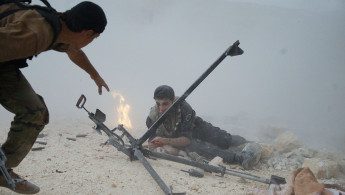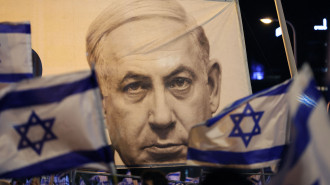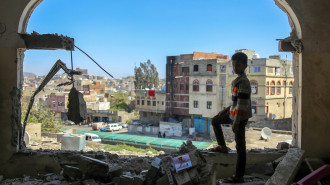US hopes for Syria lie with the Kurds
While Syrian forces fail to break the deadlock against the Islamic State group, a small band of rebel Kurdish fighters have turned back the extremists' gains in eastern Syria.
Over the past year, Euphrates Volcano has captured important strategic towns such as Tal Abyad close to the Turkish border, and moved deeper towards IS' self-declared capital, Raqqa.
The anti-jihadi force - now using the name Syrian Democratic Forces - has been given a considerable boost when the US dropped tonnes of guns and ammunition to fighters on the front lines against IS.
It marked a new chapter in a failed US policy towards the war in Syria
On 9 October, Defence Secretary Ashton Carter announced that it would scrap its "train and equip" programme for rebel fighters and instead supply material support to anti-IS brigades.
Speaking in London, Carter gave special emphasis to Kurdish militias that he described as "capable and motivated".
Mystery still surrounds which rebel militias will directly benefit from the weapons, but the defence chief insisted that only Arab militias dedicated solely to fighting IS were being supported.
"They're not anywhere near regime forces, they are specifically near [IS], which is who we are interested in fighting," said Steve Warren, spokesperson for the US military.
One of the few Arab factions in the Syrian Democratic Forces said two weeks ago that they were waiting for a substantial supply of arms to "liberate Raqqa from IS gangs".
| Read more: US recruits 'about 60' Syrians to fight the Islamic State group |
Given the timing of the statement, it would suggest the US was the supplier.
However, other rebel groups in Aleppo who are fighting a two-front war against IS and regime forces - under Russian bombing - will undoubtedly suffer.
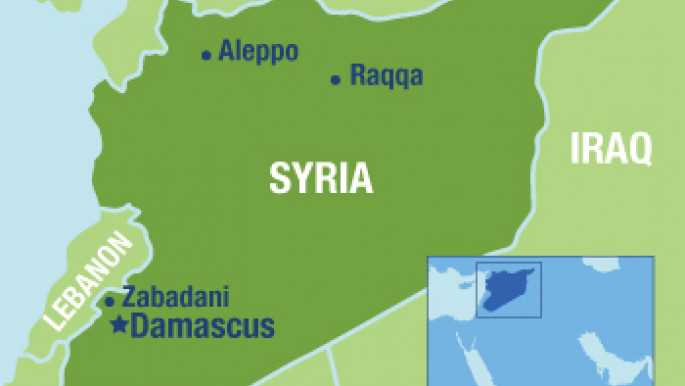 |
The Syrian regime announced the launch of a new Aleppo offensive against the rebels on Friday, which coincides with another military campaign by IS.
Over the past week, the extremists have captured several opposition-held villages in the northern province.
US support
The rebel camp is adament that the war in Syria - and extremism - will not end unless both IS and Assad are defeated.
US supplies have not been forthcoming in their battle against Damascus. What has been provided to "moderate groups" is usually non-lethal aid, such as military food rations, known as Meals Ready to Eat, that are close to expiring.
Washington is transfixed on the sideshow in the Syria war - the Islamic State group - and not the greater tragedy, which is the regime and its militias who are responsible for the majority of the 250,000 deaths so far in the war.
Rebel fighters joke that the only US weapons they have seen in the war have been directed at them.
This happened when they faced an IS counter-offensive in eastern Syria in 2014, freshly equipped with M16s taken from Iraqi arms' depots they had raided.
The rebels say they are engaged in Syria's forgotten war, and have been engaged in the lion's share of fighting against the group in Syria.
Although rebel groups include some aligned to extremist ideoligies - such as the Nusra Front, al-Qaeda's local franchise - all of the opposition are viewed as "apostates" by the IS leadership, and thus a greater evil than the "infidel" Assad himself.
IS has concentrated most of its forces on fighting the rebels, and the front lines between the extremist group and government forces are the quietest in Aleppo province.
When Kurdish fighters took over an opposition-held neighbourhood in Aleppo, rebel fighters calmly withdrew, reasoning that they would be better directed against the regime and IS, rather than fighting the Kurds.
Meanwhile, the US-backed Kurdish militias have reportedly ethnically cleansed Arab villages in territories in the north and east, according to a recent Amnesty International report.
IS airforce
Russia entered the war with a series of air raids on rebel-held towns, claiming to be backing the regime against IS.
But Russia has made no pretences about supporting regime assaults in Aleppo, Hama and Homs against rebel forces with air raids.
Almost all targets hit by Moscow have been in rebel-held territories, leading to Russian aircraft being dubbed "the IS air force".
Russia is slowly attempting to wipe out IS' biggest opponent in Syria, and ensuring the skies above its territories are clear, as the US-backed military coalition winds down its bombing to avoid clashes with Russian aircraft.
This has enabled IS to concentrate its troops on new assaults on the rebels in Aleppo.
"If I were [the rebels] I would give up expecting anything from the Americans and the West. IS is enjoying a super-boom while the US talks and Russia bombs IS' enemies," said Robin Yassin-Kassab, a British-Syrian writer.
"The US wants to disengage from the Middle East - which is fine and good - but it has done it in such a perspicuous and careless way, by handing over control to the Russians and Iranians."
Iranian troops and allied militias have been pouring into Syria, to bolster seriously the seriously undermanned Syrian army.
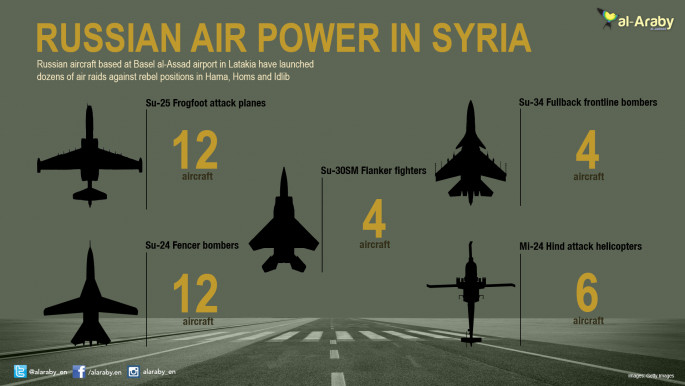 |
Eleven million Syrians have fled their homes, and even Alawites in Latakia previously relied upon for support are reportedly attempting to escape conscription.
Meanwhile, other minorities, such as the Druze, have been reluctant to join the army and prefer to join local militias to protect their homes from outside attacks.
The Syrian regime looks to be pursuing a tactic of avoiding direct confrontation with IS, and directing the extremist force's attention towards the rebels.
"Russia's game plan seems to be annihilate every fighting force in Syria except Assad and IS - and if they manage this, it would be a disastrous outcome," said Yassin-Kassab.
"In a straight fight between the regime and IS, then IS will win."
Hama
Perhaps ironically, the most successful rebel brigades against the regime forces in Hama have been the moderate Free Syrian Army and its allied militias, who were rolling back IS advances in Aleppo until Russia entered the war.
The Kurdish miltias have only been successful when they were supported by massive US air support, as when People's Protection Forces and Peshmerga retook Kobane on the Turkish border.
They have also only managed to win back Kurdish-majority areas. Yassin-Kassab maintains that only Arabs can win control of Arab-majority areas such as Raqqa city and Deir Az-zour.
Instead of defeating extremist groups, Russia's bombing looks likely to attract yet more jihadi fighters to Syria.
"I do think this is a key event in the future transformation of jihadism," said Yassin-Kassab.
"I think this will change jihadis' policy and I expect it will come back to bite Russia in the future."
